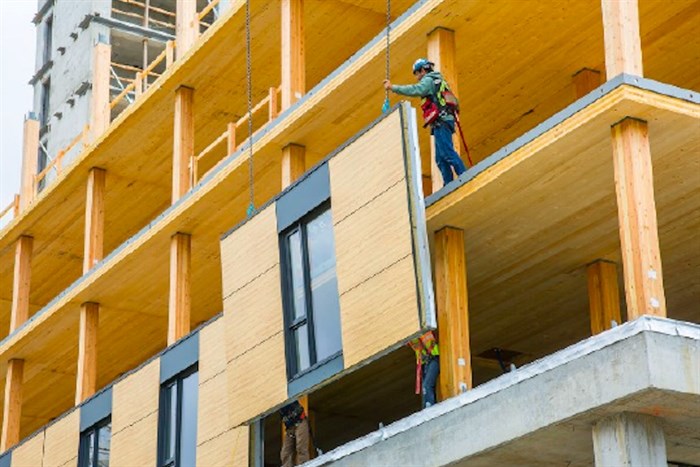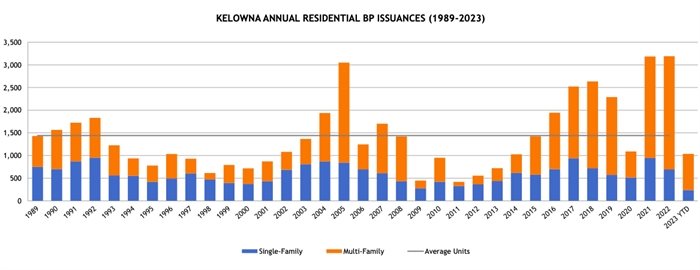Housing starts falling in Kamloops, Okanagan despite growing housing crisis
Despite the fact that there’s a desperate need for new housing across Canada, especially, in fast growing areas like Kamloops and the Okanagan, housing starts have dropped dramatically this year.
Kamloops, for example, issued building permits for 131 homes in the first six months of this year, down from 200 last year.
Kelowna dropped to 1,040 from almost 1,500 permits last year.
“If it’s truly a crisis, if we’re going to use that word and actually mean it, then all solutions need to be on the table,” Dan Winer, executive officer of the Central Okanagan branch of the Canadian Homebuilders’ Association, told iNFOnews.ca after issuing a press release highlighting the drop in Kelowna’s numbers. “We’re going to put these numbers out on a monthly basis because the general public needs to see the scale of the problem.”
While he has high praise for Kelowna being one of the fastest cities in BC when it comes to processing permits, that doesn’t mean it, along with the rest of the province, can’t get better and churn out more new homes.
“I think we need to be looking at minimum lot sizes,” Winer said. “We need to be looking at how we can densify faster. We need to be looking at setbacks. We need to be looking at how much we can build on a lot. We need to be looking at Development Cost Charges. We need to be looking at the permanent growth boundary.”
The province is expected to come out with legislation this fall to require up to four units on most single-family lots.
READ MORE: Kamloops needs to tow the provincial housing line or go on its 'naughty' list
“That still requires the homeowner who’s on that land to want to sell,” Winer said. “And, in order for the person who’s on that land to want to sell, they need to have somewhere else to go. If everyone is relying on that as a silver bullet to this housing crisis, I would preach caution because it’s not going to fix the problem nearly as fast as we need it to.
“I think further consideration of the permanent growth boundaries is one of the fastest ways that we can speed up housing because, as soon as you put that boundary around there, the value of everything in that boundary goes up.”
He's also calling on governments to look at cities like Edmonton that has been recognized as having the most straightforward housing construction rules of any Canadian city.
“I understand they have a fast-track trusted builder program so, once you’ve gone through a permit once and you’ve completed X amount of inspections and you’re doing things by the book and you’ve established rapport with your municipality, you’re able to get through that process much quicker than somebody who may be new to town or is just getting up and started as a builder,” he said.
The BC government, too, might want to look to Alberta for ways to speed up the approval process.
"The whole development approval process is different there,” Jared Kassel, director of planning and development for the District of Lake Country, told iNFOnews.ca.
He was hired by Lake Country last year after working in Calgary for almost 20 years.
“If somebody applies for a development permit and have the right zoning and that kind of thing and have a complete application, the municipality actually has to make a decision on that development permit within 30 days of receiving it, or it’s deemed a refusal and it goes to an appeal board for a decision.”
That timeline is dictated by the provincial Municipal Government Act.
Subdivisions have to be processed within 60 days.
To contact a reporter for this story, email Rob Munro or call 250-808-0143 or email the editor. You can also submit photos, videos or news tips to the newsroom and be entered to win a monthly prize draw.
We welcome your comments and opinions on our stories but play nice. We won't censor or delete comments unless they contain off-topic statements or links, unnecessary vulgarity, false facts, spam or obviously fake profiles. If you have any concerns about what you see in comments, email the editor in the link above. SUBSCRIBE to our awesome newsletter here.





